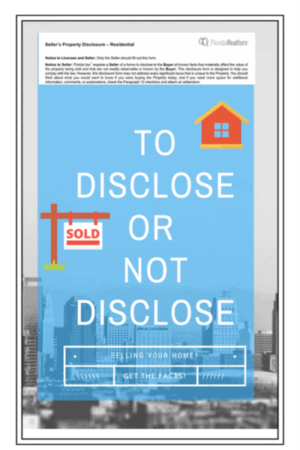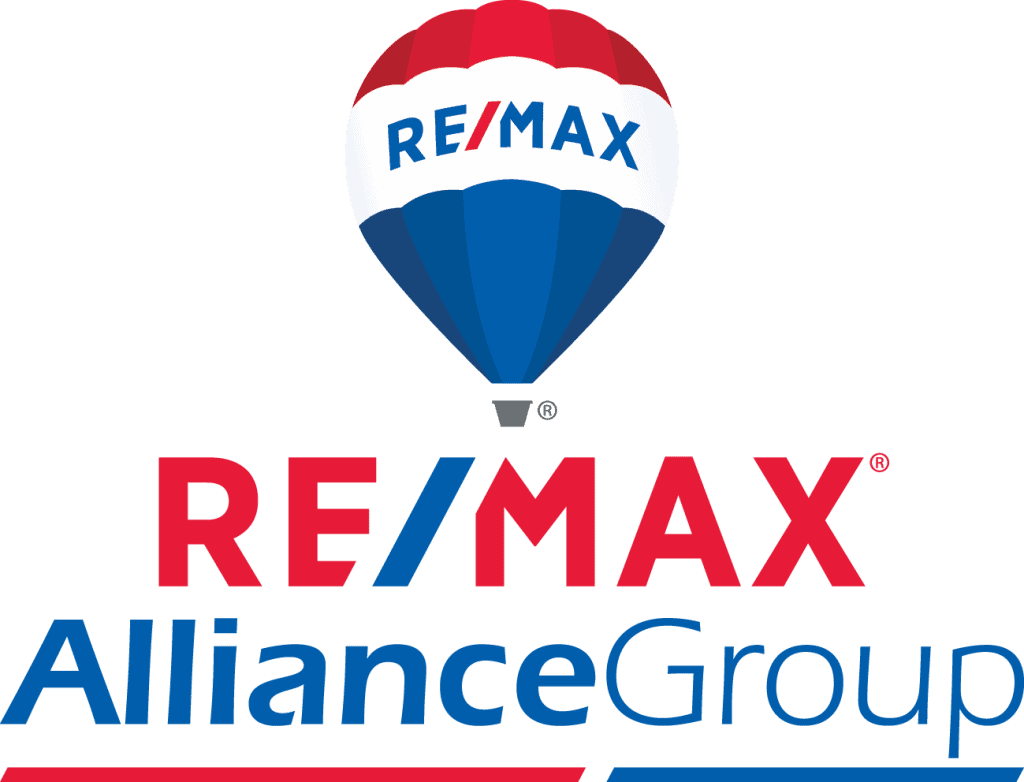“To Disclose or Not Disclose When Selling a Home”
Seller Liability for Non-Disclosure of Known Defects
By: Charles R. Gallagher III
It is a decision that every seller of real property is burdened with, to disclose, or not disclose….damage, defects or other problems with the property. Charged with knowledge and a history of the property, the law imposes a duty upon sellers to provide the buyer with a candid assessment of the condition of the real property, for their due diligence purposes, even if it jeopardizes closing the deal.
Typically, this disclosure arises in connection with a Seller’s Property Disclosure Statement furnished to prospective buyers prior to any offer. The Florida Association of Realtors disclosure form lists a variety of areas for the seller address the condition of the property, requiring an affirmative or negative response with explanation. However, sellers can also disclose information on the condition of the property orally or in a less formal writing.
Disclose What You Know
Under Florida law, a seller must disclose all known defects or damage to their property. Non-disclosure of known defects or damage is actionable and commonly known as a “Johnson v. Davis” action. A Johnson v. Davis action for non-disclosure, requires that a buyer must plead: “[W]here the seller of a home knows of facts materially affecting the value of the property which are not readily observable and are not known to the buyer, the seller is under a duty to disclose them to the buyer.” Johnson v. Davis, 487 So. 2d 625 (Fla.1986).
In other words, “[a] nondisclosure claim under Johnson has four elements:
(1) the seller of a home must have knowledge of a defect in the property,
(2) the defect must materially affect the value of the property,
(3) the defect must be not readily observable and must be unknown to the buyer, and
(4) the buyer must establish that the seller failed to disclose the defect to the buyer.”
See Jensen v. Bailey, 76 So. 3d 980 (Fla 2d DCA 2011).
We frequently litigate these matters and recently resolved a case where a seller had actual knowledge of an unrepaired sinkhole present at their property and failed to inform the buyers of the same. The buyers closed on the property later finding cosmetically repaired and hidden cracks. Once the buyers found out about the non-disclosed sinkhole they brought suit on the grounds that it was known defect. The Court applied the Johnson standard echoing the obligation of the seller to disclose what it knew.
We are currently involved in a case defending the realtor and brokerage where a buyer brought suit for nondisclosure, where neither the seller nor realtor had knowledge of the alleged termite damage. Here the Court has repeatedly dismissed the buyer’s lawsuit given the absence of knowledge by the realtor.
In determining the judgment call of whether to disclose or not disclose, there is helpful test laid out by Johnson; does the damage or defect “materially affect the value of the property.” Applying that test to the damage or defect will allow for a candid disclosure as to the condition of the property.
Actual Knowledge of Defect
But what if you should have known of the defect? Sellers are protected from liability where the defect is unknown. Florida law requires actual knowledge and a seller will not be held liable for a defect which it should have known or constructive knowledge. Actual knowledge of the defect is required for a seller to be liable for non-disclosure of the defect. Jensen v. Bailey, 76 So. 3d 980, 984 (Fla. 2d DCA 2011). Sellers who are legitimately unaware of defect will not be liable for non-disclosure.
Under that same logic, constructive knowledge of the alleged defect and damage is insufficient to hold a seller liable for non-disclosure. Florida case law explains the reason a claim for nondisclosure must be based on actual knowledge of the alleged defect is to prevent converting those involved in selling the property into guarantors of the condition of the property.
 “As Is” Contract Does Not Relieve Disclosure Obligation
“As Is” Contract Does Not Relieve Disclosure Obligation
“Not to worry, it was an “As Is” Contract”, you might think. To the contrary, a seller’s disclosure obligations are not relieved by using an “As Is” Contract under Florida law.
In Solorzano v. First Union Mortg. Corp., 896 So.2d 847 (Fla. 4th DCA 2005) the court held that the inclusion of an “as is” clause in a contract for the sale of residential real property does not waive the duty imposed upon a seller under Johnson. See also Syvrud v. Today Real Estate, Inc., 858 So.2d 1125, 1130 (Fla. 2d DCA 2003). Courts have also held that an “as is” clause in a contract for sale of real property cannot be relied upon to bar a claim for fraudulent misrepresentation or fraudulent nondisclosure.
Johnson Applies to Seller’s Realtors
The duty to disclose what you know is not limited to sellers and applies to realtors. In Syvrud v. Today Real Estate, Inc., 858 So.2d 1125, 1129 (Fla. 2d DCA 2003), the court extended the Johnson duty to disclose to the seller’s real estate broker under a negligence theory. There, purchasers of a condominium, brought action against seller for damages related to structural defects in the condominium. The court that the contract did not relieve the listing broker of the duty to disclose known hidden defects within the structure of premises. The distinguishing fact here involves the realtor’s actual knowledge of the defect and failure to inform the buyer of the same.
Best Practices for Sellers and Buyers
It is always advisable to consult with an experienced realtor on all real estate transactions to navigate you through the entire sale process. In the event you have questions about your disclosure requirements or your transaction includes legal issues, it is also prudent to obtain the assistance of an experienced real estate attorney.
To avoid liability for non-disclosure, Sellers are well advised to carefully review and candidly prepare their Seller’s Property Disclosure Statement. If it’s a close call, err on the side of disclosing it. Don’t expect that significant obvious damage or defect will escape the eye of a buyer, their realtor, and their inspectors. Allow the buyers as long as they want to inspect the property. Be open and candid with any questions they may have. Finally ask yourself, does this damage “materially affect the value of the property?” While this can be a stressful time, defer to the guidance and judgment of your realtor during this process.
To protect your purchase and avoid buying a damaged home, Buyers are well advised to spend sufficient time inspecting the home and property during daylight, when the power and utilities are on. Research public records (including property appraiser’s records, tax collectors records, public records for sales/conveyances and court records) to determine if there were anomalies, claims or lawsuits regarding the property. You might find construction litigation against a builder or an insurance claim against the insurer. You might find the taxable value to be reduced due to the presence of a sinkhole. You might find unqualified sales or sales at a salvage rate. Obtain a survey, secure a home inspector and termite inspector to report on the condition of the property. Use your due diligence period to investigate and research. As with sellers, defer to the judgment and guidance of your realtor during this transaction.
As they say, an ounce of prevention is worth a pound of cure. Whether you are a buyer or seller, adequate preparations and investigation in connection with the disclosure requirements of a home sale will save you time and money in the long run. Should you have any questions about your obligations, feel free to contact the attorneys at Gallagher & Associates Law Firm, P.A.
Thinking of selling your home? You may contact me here, or call me at 813-784-7744. I hope you found this article useful and please feel free to share with your friends!
Charles R. Gallagher III is the founder and principal of Gallagher & Associates Law Firm, P.A., a concierge legal practice in St. Petersburg, Florida. His practice includes real estate, foreclosure defense, consumer law, real and business litigation and insurance litigation. Mr. Gallagher is a graduate of Rollins College and Stetson University College of Law. He is a graduate of Leadership St. Pete and was selected as a Rising Star by Florida Super Lawyers and selected as an “Up and Comer” by the Tampa Bay Business Journal. He frequently lectures and serves as a media commentator on legal topics. More information about G&A is available at www.attorneyoffices.org, Twitter: @GallagherLaw or Facebook/GallagherLaw.






